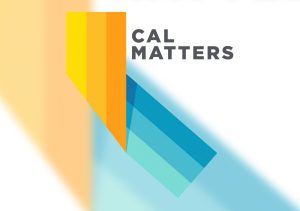New Common Core Standards On the Horizon
Like it or not, the new Common Core (www.commoncore.org) education standards are being adopted across the U.S. Starting this summer. The California Department of Education (CDE) expects districts to be training their teachers in the standards, and evaluating their current curriculum by the new standards. In 2014-2015, the CDE expects districts to be implementing the standards and the accompanying online testing regimen. The standards are benchmarked to international standards.
Supporters say national standards are essential in a mobile society to ensure that students get a consistent and comprehensive education even if they move or change schools. Further, proponents say that Common Core is about making education more like the real world processes that people use to solve problems and do their jobs every day, and aim to ensure that students leave secondary school prepared for college or work.
But there’s no question that Common Core is a more complex way of teaching and testing, because it targets underlying understanding. And, as you might expect, this complexity has sparked criticism from a variety of sources.
Common Core and Its Critics
Common Core has been criticized from every angle. It’s been attacked as everything from an opportunist move on the part of education consultants, testing corporations and technology manufacturers to increase profits, to being the linchpin of a Marxist New World Order plot.
Less ideological critics raise their own questions about the usefulness of the standards.
Georgetown University Center on Education and the Workforce Director Anthony Carnevale, calls Common Core a one-size-fits-all, overly “abstract and academic” teaching approach.
Another critic is frequent contributor to the NY Times editorial page, Andrew Hacker.
“Nor is it clear that the math we learn in the classroom has any relation to the quantitative reasoning we need on the job,” he wrote last year in a provocatively-titled NY Times opinion piece, Is Algebra Necessary? “John P. Smith III, an educational psychologist at Michigan State University who has studied math education, has found that ‘mathematical reasoning in workplaces differs markedly from the algorithms taught in school.'” One simple example: in the real world realm of semiconductor production, statistics is more relevant than trigonometry.
Critics also question whether Common Core will just place one more obstacle in front of the disadvantaged students who are already behind – and add to the advantages already enjoyed by students whose parents can, for example, afford private test tutoring.
“Almost one-quarter of young Americans do not finish high school,” Hacker and Claudia Dreifus wrote in a NY Times editorial last month. “In Utah and Oklahoma, roughly 20 percent don’t; the proportion rises to 32 percent in South Carolina and 42 percent in Nevada. What does the Common Core offer these students?”
Early reports indicate that a rocky road lies ahead. Kentucky adopted Common Core in 2010, and saw students’ achievement scores drop about a third – in addition to being stymied by problems in scoring the tests’ “constructed” answers – i.e. written, rather than multiple choice, answers.
In New Mexico, a pilot project didn’t even reach that point.
The district’s network was overwhelmed by 20 classes of students participating in Common Core’s online testing regimen – highlighting the hidden costs of replacing the familiar paradigm of pencil and paper with computer technology. And in Oklahoma, educators are demanding that the state toss the results of a CTB/McGraw Hill online testing system that was so riddled with problems and errors that it left students “exhausted, frustrated, demoralized and incapable of giving their best effort.”
For more information, visit www.santaclarausd.org/departments.cfm?subpage=1633834 or www.corestandards.org.
Common Core in the Classroom
Regardless of your view of Common Core, one question many have is how it will change what happens in classrooms. Several organizations have published prototype lessons, including the Partnership for Assessment of Readiness for College and Careers (www.parcconline.org), a consortium of U.S. educators, and the non-profit Student Achievement Partners (www.achievethecore.org).
Accompanying this article are some examples of Common Core lessons.











0 comments